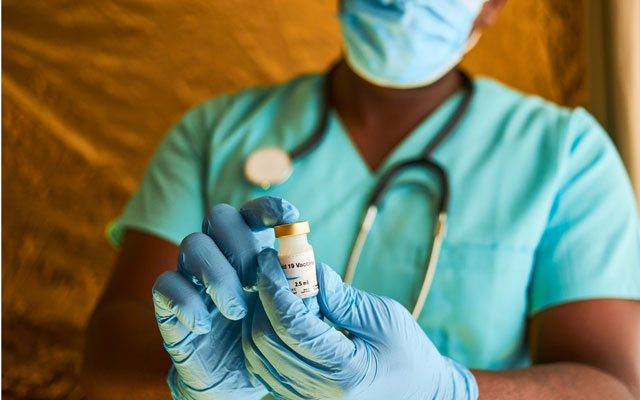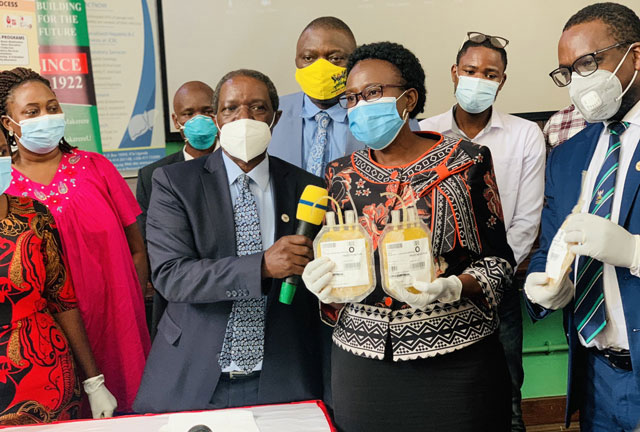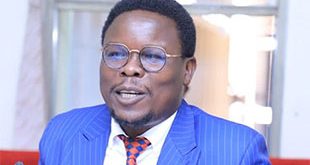
Vaccination is voluntary
Dr. Aceng emphasized that vaccination will be voluntary upon signing a consent form and will be free of charge. But even then, she said it is important for all eligible people in the country to get vaccinated but also keep observing the SOPs including wearing the masks.
Aceng said: “Your health is your responsibility; if you choose not to be vaccinated, then don’t complain when you get infected and you get into the intensive care unit. It is your responsibility to make an informed choice to protect yourself and loved ones and interrupt the transmission of COVID-19 which is still ongoing.”
But will this be enough to convince Ugandans to take the COVID-19 vaccine jab? Will this communication strategy settle lingering questions in people’s minds?
A day after Dr. Aceng announced her elaborate nationwide vaccination programme, Sudhir Byaruhanga, a journalist working with local broadcaster, NTVU, noted something intriguing on his Facebook page:
“COVID-19 is vanishing. Mulago (Hospital) has only five patients, Entebbe Grade B has no patients, and private hospitals which were admitting people all don’t have COVID-19 patients. Even if there is no mass testing, people would still get sick and come to hospital. The doctors have failed to explain this.” The Independent was not able to verify Sudhir’s observation but what is obvious is that COVID-19 infection figures in Uganda have drastically fallen since the beginning of this year.
The John Hopkins University COVID-19 dashboard which has the latest statistics on global infections and deaths from COVID-19, showed on March 05 that Uganda had so far registered about 40,426 cumulative cases of infection and 334 deaths. But Dr. Aceng says the current statistics should not fool Ugandans into complacency.
“Right now, the numbers are quite low and Ugandans have begun thinking that there is no more COVID-19 in the country but let me warn you that even one case can open-up community transmission. That is why vaccination is important.”
Congratulations to Uganda🇺🇬 on receiving its first batch of #COVID19 vaccines under #COVAX facility that #France🇫🇷 and #EU🇪🇺 support with @WHO and others for a global response. @EmmanuelMacron has called for more vaccines for #Africa. @JaAniambossou @francediplo_EN @MinofHealthUG pic.twitter.com/0MAA3hxbJr
— France in Uganda (@FrenchEmbassyUg) March 5, 2021
Today is an important milestone in Uganda’s fight against COVID. @USAmbUganda was honored to join @MinofHealthUG, @WHOUganda & #COVAX partners as 🇺🇬 received its first allotment of #COVID-19 vaccines through the COVAX facility. (1/4) pic.twitter.com/MuhdY1gb1I
— U.S. Mission Uganda (@usmissionuganda) March 5, 2021
Whether this explanation will suffice will be seen in how Ugandans respond over the next few weeks. For starters, there are Ugandans who harbour doubts about COVID-19 while others remain skeptical about the vaccine safety.
Since November, last year, when American pharmaceutical giants Pfizer and BioNTech excited the world with the announcement that they had reached a breakthrough in developing a Coronavirus vaccine, there has been both excitement and apprehension.
Whereas, many governments, especially those that were worst hit by the pandemic took the news with enthusiasm and immediately sent in bids to procure the vaccine, millions of other people including some scientists have expressed their reservations about the vaccine’s safety.
Some critics say vaccines normally take years to develop but the vaccine development for COVID-19 took a record time: just months. In Uganda, there has been growing hesitancy towards vaccines, thanks to strong cultural and religious reasons.
Dr. Aceng’s vaccination programme must win-over skeptics among the public. All around the world, convincing millions of people to report to the doctor’s office or pharmacy for an injection of a lab-made genetic substance that has never been used before in a vaccine, and which was rushed from discovery to the market, has not been easy.

This, coupled with fake information which spreads like wildfire via social media platforms remains one of the biggest challenges for many governments rolling out the COVID-19 vaccines. It might take Aceng and the government an extraordinary and sustained campaign to convince people to go for the jab.
In the western world, especially in the U.S., vaccine skeptics known as “the anti-vax movement,” have been blamed for outbreaks of measles, mumps and whooping cough in the past two decades owing to their reluctance to be vaccinated.
Meanwhile some Christians reject vaccinations because they believe the pandemic is part of the end times. Other Americans aren’t driven by ideology: They would simply rather wait and let other people be the guinea pigs—just in case.
In October 2019, at the initiation of a nationwide immunization exercise in Uganda against polio, measles and rubella that was running into an anti-vaccination campaign, Aceng even had her daughter take the jab in the full glare of television cameras to prove to Ugandans that the vaccine was safe. Will she do that again? (CLICK TO GO TO PAGE 3)
 The Independent Uganda: You get the Truth we Pay the Price
The Independent Uganda: You get the Truth we Pay the Price



